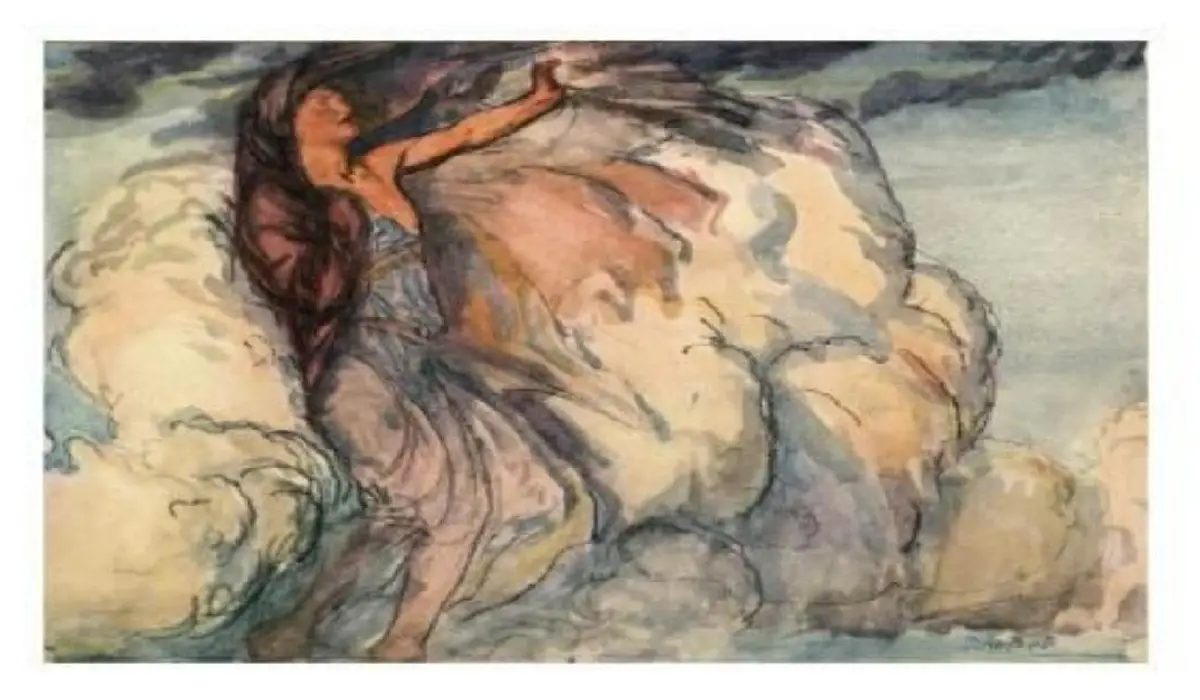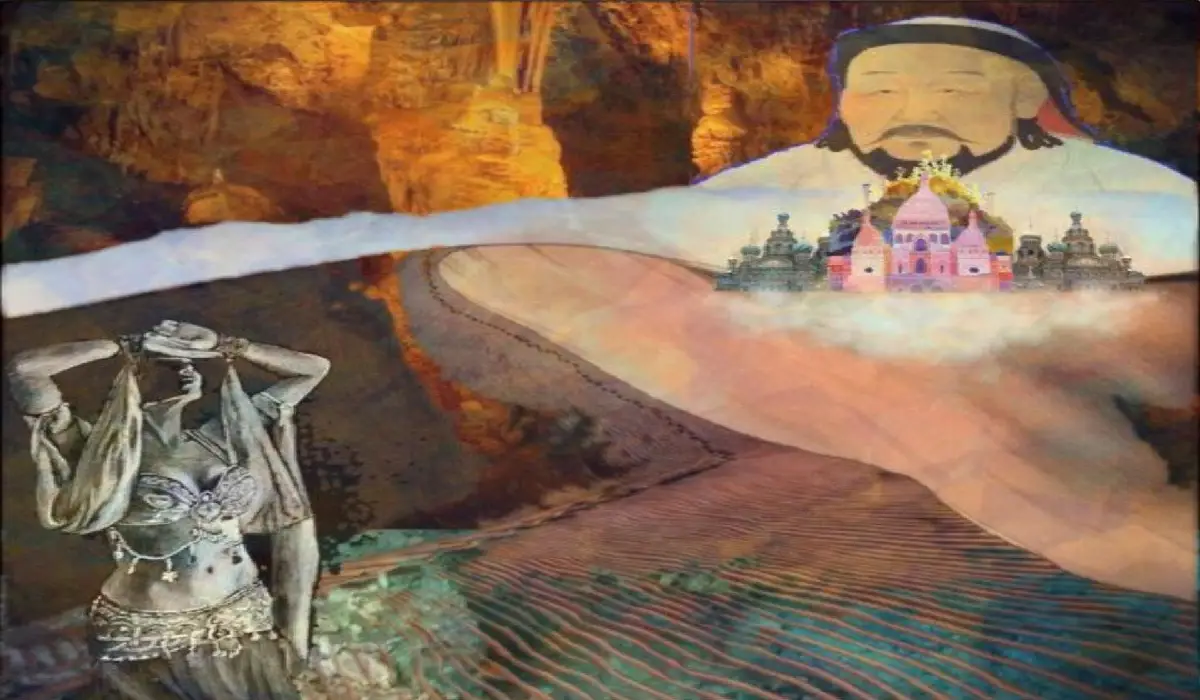The Romantic period’s writers were quite different from the writers of their previous age writers. The principles that governed their predecessors were discarded by Romantic painters and authors. The Romantic poets write in common man’s language rather than the exalted language of the neoclassicists. Along with the new view that creativity is better than abiding by strict rules, the romanticists developed a deep appreciation for the beauty of nature. The Romantic writers were expressed emotions and thoughts honestly and profoundly.
Nature was more than just trees and rocks but sublime entities intertwined to man’s existence in earth. Unlike the Enlightenment writers who sought to embody the outer world and create rules for imitation, romanticists sought the internal facts of imagination, and they gave emphasise to creativity, emotions and the existence of manhood. The works of philosophers like Plato, Godwin, and Rousseau inspired him to urge the people of England to stand together to displace the tyranny from the society. His idea of a new world free from suppression and oppression can be considered as a romantic dream which eventually surpassed the limit of England and spread across the world.
The maxim of French Revolution Equality, Liberty and Fraternity was his main objective of his revolutionary notions. As critic Clutton Brock points out, “For Shelley, the forces of nature have as much as human beings have for most of us, and he found the same kind of beauty that we find in the beauty of human beings in the great works of art.”The poem calls upon the West Wind in zealous language and symbolic imagery to portray his recognition of the beauty of it. He acknowledges the extraordinary power of the West Wind by saying:
Wild Spirit, which art moving everywhere
Destroyer and Preserver; hear, O hear!
As M.H. Abrams observes “the Romantic period was eminently an age obsessed with fact of violent change”. This attitude is evidently seen in Percy Bysshe Shelley’s Ode to The West Wind. (“Revolution” 659). Shelley’s poem expresses the yearning for Genius which was common in Romantic era to associate genius with an attendant spirit or force of nature from which the genius came. Romantics considered that artists as pots through which the genius flows. Shelley’s belief that the quest for beauty is yet another key feature of Romantic ideals. Shelley invokes the wind to “make me thy lyre”.
The lyre is one of few instruments which existed in the seventeenth century invented in ancient Greece. It is a symbol of art and beauty and a common symbol for the artist being played by inspiration. Shelly expresses his individual feeling and ideals and was never the speaker of any institutions like Kingdom, or political parties. In this poem, he asserts this individualism and inspire people to liberate themselves from the influence of other people or institution.
The role of poet in Shelly’s poetry is not just a talented entertainer or a perceptive moralist but a grand, tragic, prophetic hero. This is yet another instance of Romantic zeal where poet has a deep, mystic appreciation for nature in the poem Ode to West Wind. Also, he acts like a hero to bring dispersed people together to fight for freedom. Poet perceive himself as a revolutionary hero. Like other romantic poets like William Wordsworth, Shelley uses nature as his primary source of poetic inspiration.
Shelly proposes that the natural world holds a sublime power over his imagination. This power seems to be mystical than simply an appreciation of nature’s beauty. Although nature has creative power over poet, he feels that his imagination has creative power over nature. It is the imagination or the ability to form sensory perceptions allows us to describe nature in different ways. In the poem, there are five parts, which all together contribute the Romantic ideals and notions to the poem. The first part describes the wind in the forest, where the leaves are driven like ghost before the wind, and the seeds are swept up to come down again in their wintry beds. One of the central ideas of the Romantic literary figures was the inherent value of the “primitive and untrammelled” (Revolution 657).
Shelly uses images of innocence and serenity like the descriptions of “azure moss and flowers,” “sea-blooms,” and “oozy woods” are significant in this aspect. The second part pictures the wind in the sky, driving the clouds and the rain. In the third, we see the wind blowing over the sea, where quiet waters are about to be churned up into fury. In the fourth part the poet states, his reason for the prayer that he must make. In the last part there is the prayer itself, and the central meaning of the poem.
Shelly has used immense imagination throughout the poem which is key feature of Romanticism. The popular Romantic notion was that imagination was the side of the mind that allowed a person to forge a link with someone or something. Wind is personified as a spirit. “Thine azure sister of the spring shall blow her clarion” is the imagination for the reviving wind that will blow in the spring. The dying year and this closing night are the imagination of the end of the year where autumn season is over and will be followed by winter. Shelly regards the wind as the most powerful thing, so that he begins praying to the wind in his sorrow. He asks the wind to lift him up, to restore the power he has lost. He wants the strong wind to take his dead thoughts away, for he wants to forget his past life, to rebuild a better life. Sparks are imagery for the poet’s poems that he will write in the future. Spark is “a tiny bit of burning matter thrown off by something that is very hot or a fire”.
“Unextinguished hearth” is the imagination of the poet’s own life. He compares his life to it, since though he feels despair and hopeless, his enthusiasm and efforts to restore the power he has lost will never die. All these imageries taken from human life, nature and various philosophies points to his imagination rooted in romantic ideals. Besides the description of nature, Shelly expresses revolutionary spirit and used poem as a tool to rebel against human formulas and old stringent convention. He loathed any form of authority and oppression. Every word in the poem breathes unseen presence, ghost, fleeing, winged, spirit, moving, which are reflections of Shelley’s interest in the moving, indefinable features of nature of life and the revolutionary, restless spirit of the poet is manifested in such words as “wild”, “destroyer”, and “hear, o hear”..
He successfully portrayed the notion of power of the human mind becoming equal to the power of nature, and the experience of beauty in the natural world collaborating between the perceiver and the perceived. Thereby, it is to be concluded that Percy Shelley is often considered of as the quintessential Romantic poet (Appelbaum x). The “Ode to the West Wind” expresses perfectly the aims and views of the Romantic period.
Reference
- “Essay on Romanticism and Shelley’s Ode to the West Wind | Bartleby.” Essay on
Romanticism and Shelley’s Ode to the West Wind. http://www.bartleby.com/essay/Romanticism-and-Shelleys-Ode-to-the-West-F3LCUXYVC. Accessed 4 July 2021 - Gleeson, Patrick Ph. “Similarities & Differences Between Cavalier Poetry & Metaphysical
Poetry.” Pen and the Pad, 10 Jan. 2019, penandthepad.com/similarities-differences-between-cavalier-poetry-metaphysical-poetry-10020455.html - “Romanticism In Ode to The West Wind English Literature Essay.” UKEssays.Com,
www.ukessays.com/essays/english-literature/romanticism-in-ode-to-the-west-wind-english-literature-essay.php?vref=1. Accessed 4 July 2021.



